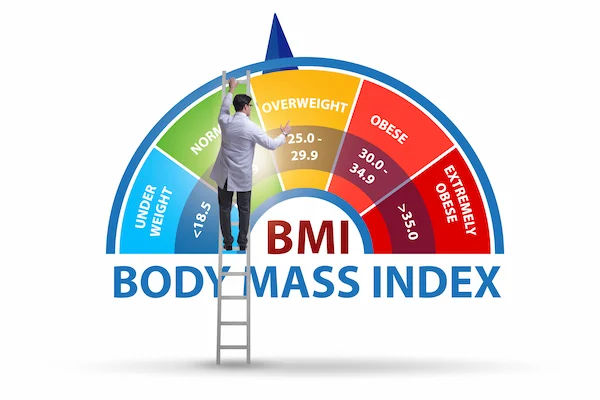Essential Nutrition Guide for Muscle Growth: Diet, Macronutrients, and Supplements
Discover the key nutrients for muscle growth, including macronutrients, vitamins, and supplements. Learn how to plan the diet for optimal muscle building and monitor progress effectively.

Written by Dr Sonia Bhatt
Last updated on 3rd Jul, 2025
The significance of food in relation to muscle building cannot be overstated. Proper nutrition is essential for muscle recovery and growth, as it supports energy needs and promotes muscle regeneration. This nourishment directly contributes to muscle development and hypertrophy.
Continue reading to understand various nutrients like micronutrients, macronutrients, diet planning, and supplement options to help achieve muscle-building goals. A well-balanced diet can help to gain muscle and strength faster.
Importance of Nutrition and Muscle Growth
Nutrition plays a vital role in muscle growth since it helps in the reconstruction and repair of damaged muscle fibres during exercise. Without proper nutrition, the muscle growth and healing process can be hindered.
Here’s why proper nutrition and dietary components are essential for muscle building:
Intake of calories
Protein for restoration
Carbohydrates
Good fats
Mineral and vitamins
Muscle hypertrophy refers to the increase in the size of muscle cells or tissues resulting from regular strength training. It develops when existing muscle fibres grow larger due to the accumulation of new muscle proteins. In response, the body works to repair and strengthen these fibres, facilitating muscle growth.
Macronutrients for Muscle Growth
The macronutrients: proteins, carbohydrates, and fats are the primary energy sources and the building blocks of muscle tissue. A balanced intake of these nutrients is essential for optimal muscle growth, energy production, and tissue repair.
Proteins play a crucial role in muscle repair and growth. They help in building muscle, repair tissue through amino acids, and promote healing. Protein sources include dairy products, seafood, eggs, meat, and plant-based foods.
Carbohydrates are one of the primary energy sources for workouts especially. They restore muscular fuel by replenishing glycogen stores, helping maintain sustained energy levels. Sources of carbs include fruits, vegetables, whole grains, and legumes.
Fats play a vital role in muscle development by promoting testosterone production, which is key for muscle growth. Fats also support cell repair and function. Nuts, seeds, oils, and fatty seafood are some good sources.
Micronutrients Supporting Muscle Growth
Essential vitamins play a key role in muscle function.
Vitamin D supports bone health and calcium absorption, while B-complex vitamins aid in protein metabolism and energy generation. Vitamin C and D can help reduce oxidative damage induced by exercise.
Minerals are crucial for muscle growth. Calcium keeps the bones strong, and magnesium helps with rest and muscle recuperation. Zinc plays a key role in immune functions and protein synthesis.
Planning the Muscle Growth Diet
A well-planned diet is crucial for muscle growth, as it ensures the body consistently receives the necessary nutrients for development. To tailor the diet effectively, it's important to calculate the calories required for optimal muscle growth.
To do this, the basal metabolic rate (BMR) can be multiplied by an activity factor that reflects an individual's physical activity level:
Sedentary (little or no exercise): BMR x 1.2
Lightly active: BMR x 1.375
Moderately active: BMR x 1.55
Very active: BMR x 1.725
Extra active: BMR x 1.9
BMR can be calculated using the following formulas:
Men: (10 x weight in kg) + (6.25 x height in cm) - (5 x age in years) + 5
Women: (10 x weight in kg) + (6.25 x height in cm) - (5 x age in years) - 161
After calculating the particular needs, it is essential to understand when to take or consume nutrients for optimal muscle growth:
Pre-workout: Proteins and carbs are recommended
Post-workout: Protein helps muscles to recuperate
Best Foods for Muscle Growth
When it comes to muscle growth, certain foods stand out as key contributors. Here are some of the best options for supporting muscle development:
Protein-rich foods are essential for muscle repair and growth. Animal-based sources like chicken, eggs, fish, and turkey provide high-quality protein, with lean cuts preferred for less fat. Plant-based options, such as lentils, tofu, quinoa, and beans, are excellent protein sources for vegetarians.
Carbohydrates are crucial for energy and recovery. Whole grains, brown rice, oats, quinoa, and root vegetables such as sweet potatoes are great options. Fruits and vegetables also offer valuable carbs and essential nutrients for overall health.
Healthy fats support energy production and hormone regulation. Sources include nuts and seeds like walnuts and chia seeds, as well as olive oil, avocado, and fatty fish like salmon, which are rich in omega-3 fatty acids.
Supplements for Muscle Growth
While a balanced diet should provide most of the nutritional needs, supplements are equally recommended as they help fill gaps and boost muscle building.
Protein powders are a convenient way to support muscle development and recovery. Casein and whey provide a quick supply of protein post-exercise, aiding muscle repair. Plant-based protein powders are excellent alternatives for vegetarians and vegans, offering fast digestibility.
Creatine is another popular supplement for muscle growth and performance; it enhances activity during intense physical workouts, promotes water retention in muscles to increase their volume, and accelerates the healing and recovery process.
BCAAs (Branched-Chain Amino Acids) help reduce muscle soreness. Beta-alanine enhances stamina, making workouts more effective. Fish oil supplements reduce inflammation, supporting overall muscle and joint health.
Challenges and Considerations in Muscle Building
Consistency challenges or dietary restrictions can hinder muscle building. Here are ways to navigate and address these limitations:
Verifying the intake of adequate protein and essential nutrients is crucial.
Incorporating plant-based protein sources like lentils, chickpeas, and tofu is highly recommended.
Opting for gluten-free alternatives such as quinoa, rice, and oats supports dietary needs.
Vegetarians and vegans can benefit from these plant-based sources to meet their protein requirements.
Ensuring protein is consistently included in meals is essential for muscle development.
Choosing nutrient-dense foods over junk food helps maintain balanced nutrition and supports muscle growth.
Muscle Growth Diet for Different Body Types
Different body types affect how one gains muscle. Therefore, by tailoring the diet as per the body type, one can maximise muscle growth. Below are the key dietary recommendations tailored to different body types:
1.Ectomorphs
They have a lean body type with long limbs, narrow shoulders and hips, and minimal body fat or muscle. They often struggle to gain weight and muscle.
Their diet should focus on extra protein and carbohydrates to aid muscle growth.
A calorie surplus is essential for putting on weight.
Increased protein intake may support muscle growth.
2.Mesomorphs
They possess an athletic body type with broad shoulders, narrow hips, and well-defined muscles. They typically build muscle quickly.
A balanced diet should be the priority for mesomorphs.
Moderating calorie intake might be necessary to maintain balance.
The intake of fats, carbs, and proteins should be adjusted.
3.Endomorphs
They have a pear-shaped body, a muscular build, and a higher percentage of body fat. They tend to gain weight easily.
Their diet needs to emphasise more protein and fewer carbohydrates.
Monitoring and controlling calorie intake is essential to avoid excess fat accumulation.
A diet focused on muscle development should be prioritised.
Conclusion
Muscle building relies on a well-balanced diet that includes the right amounts of fats, proteins, and carbohydrates, along with regular exercise. To optimise muscle growth, it's essential to complement the diet with the right supplements and track progress consistently.
Maintaining a steady routine of diet and exercise is key, as muscle development is a gradual process.
Consult Top Dietician
Consult Top Dietician

Ms Malabika Datta
Dietician
19 Years • Bsc (Clinical Nutrition & Dietetics), Msc (Dietetics & Food Service Management)
Kolkata
Malabika’s Diet Clinic, Kolkata

Neelanjana J
clinical nutrition
3 Years • Bsc., Msc. Nutrition and Dietetics.
Bengaluru
Apollo Clinic, JP nagar, Bengaluru

Dr Darshana R
General Physician/ Internal Medicine Specialist
15 Years • MBBS, MD, DNB (Internal Medicine), Diploma in Allergy, Asthma and Immunology , Fellowship in Diabetes
Bengaluru
Apollo Clinic, JP nagar, Bengaluru
(100+ Patients)
Ms Chetu Singhi
Dietician
20 Years • MSC Dietetics & Nutrition
Kolkata
RB Diagnostic - Dietician Diet2fit Chetu Singhi, Kolkata

Ms. Shereen Begum
Dietician
8 Years • BSC Food Science & Management, Msc (Nutrition & Dietetics)
Hyderabad
Dr Shereen clinic, Hyderabad

